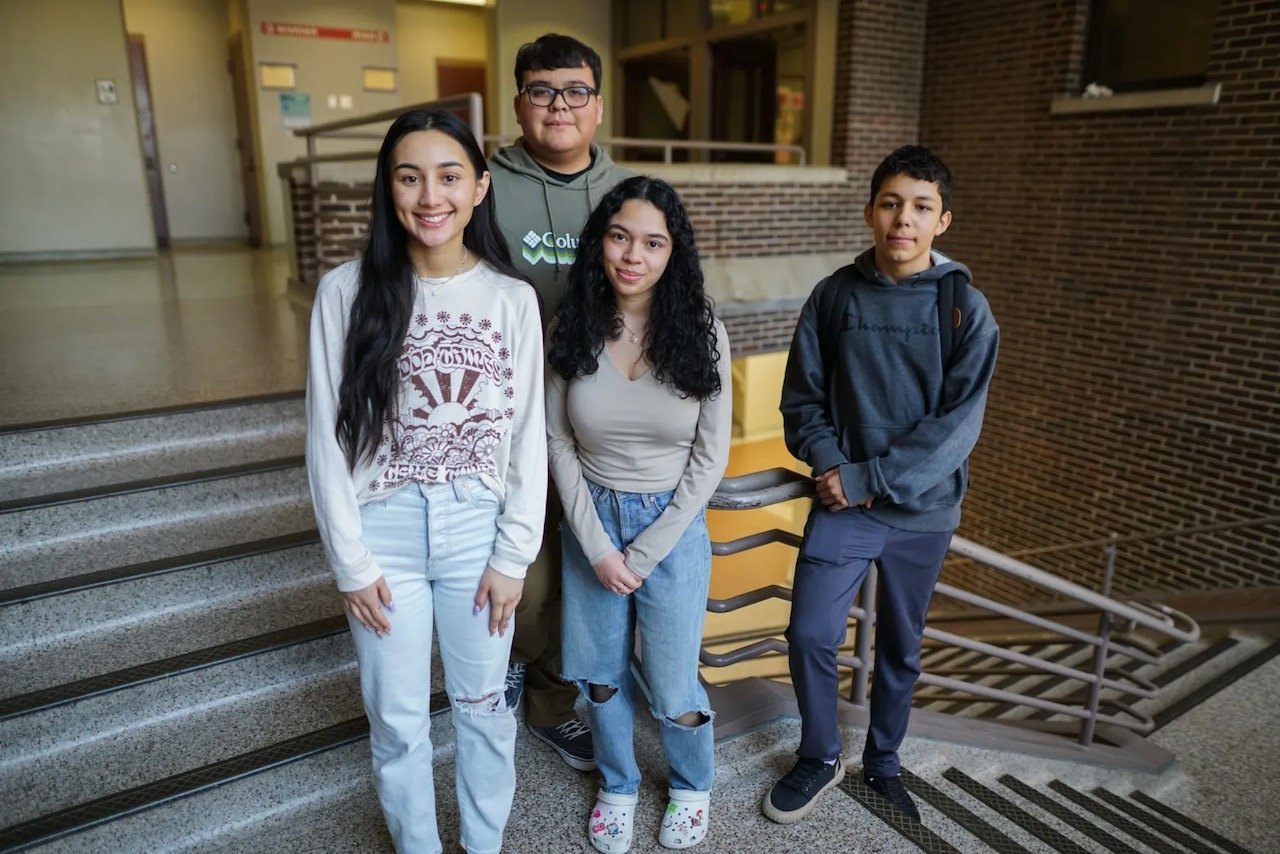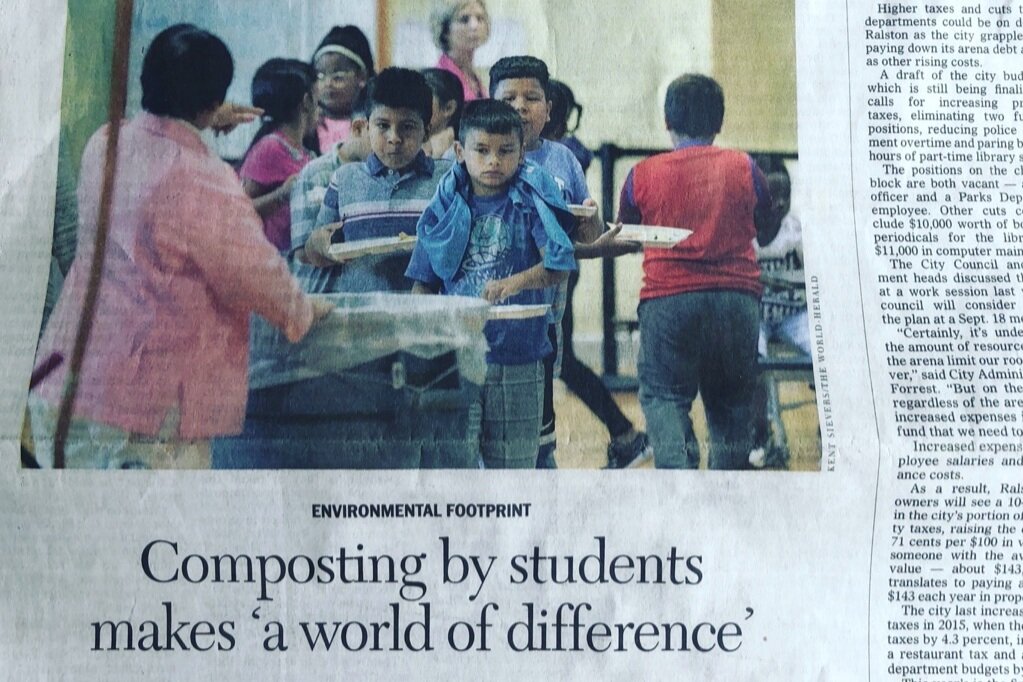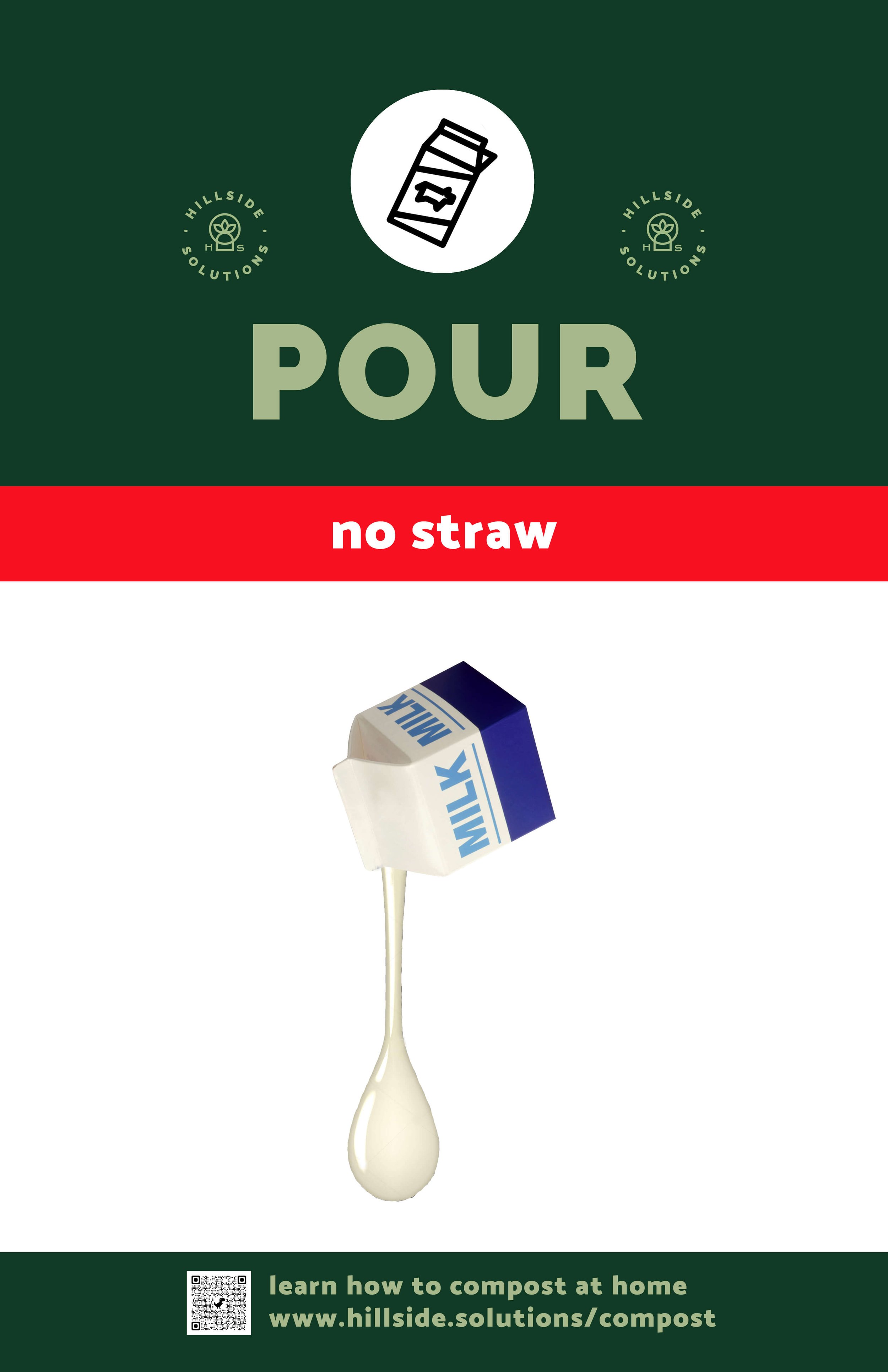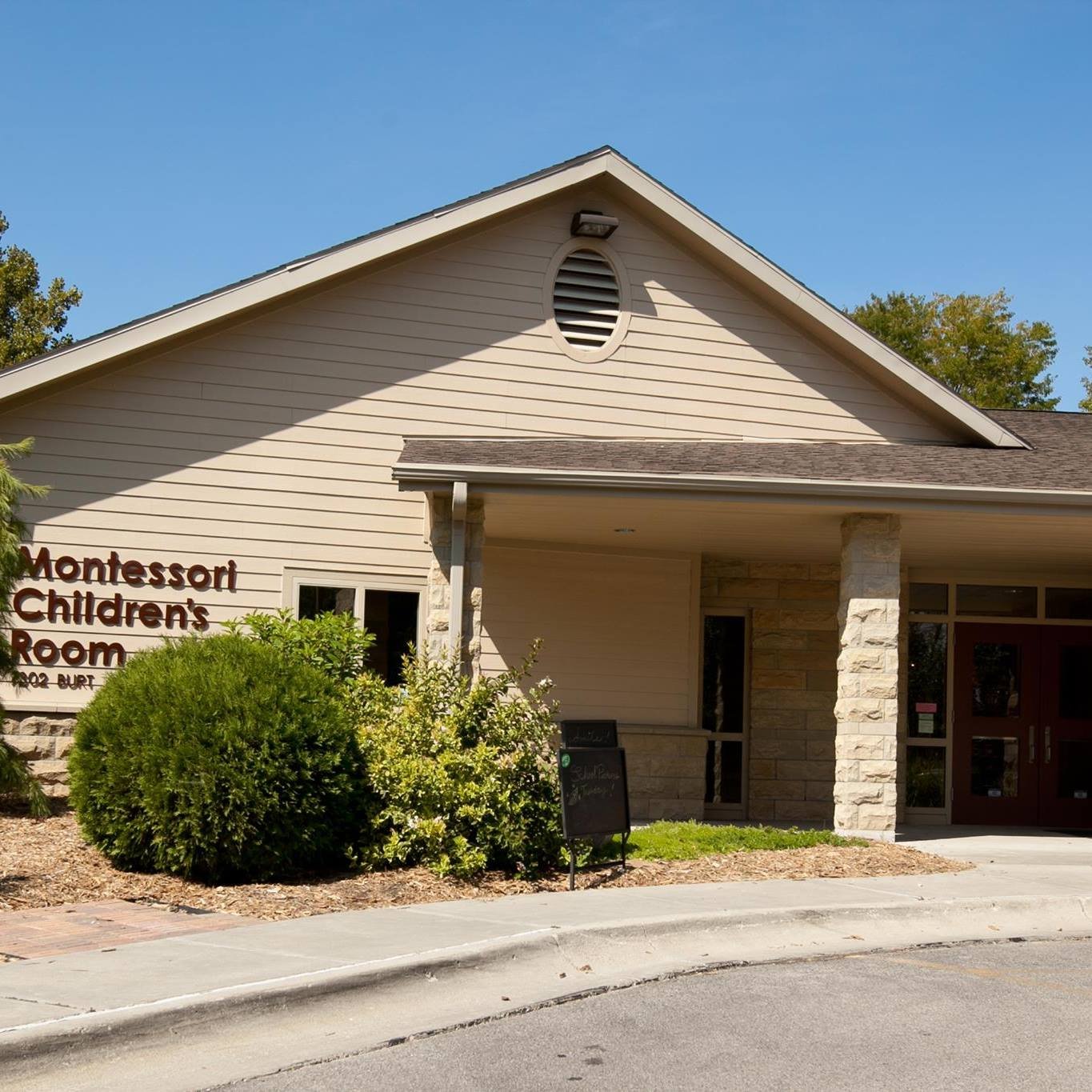SCHOOL COMPOSTING SERVICES
From pre-school to college, private to public …
We have school composting service programs at dozens of schools with thousands of participating students.
With school composting services, students learn about the anaerobic environment of landfills, how to identify & sort various types of materials, and the role they can play in the circular food system.
We train you how to do it, we haul the material for you, we process that material into finished compost, and then your school gets some of it back to fertilize landscaping, grass, or start a garden. There are no start-up fees. And we do this all for a low monthly fee that’s below the market rate we’re charging for other organizations.
Please make your way through the material on this page and reach out to us for a quote & next steps.
BENEFITS of School Composting Services
Fewer Landfill Pickups, Fewer Plastic Bags
With our first-week data report, you’ll learn how big of an impact your program will have. On average, schools divert over 60% of cafeteria waste, see a 50-80% reduction in landfill trash bags, and a 25-60% reduction in landfill pickups. We even helped Duchesne Academy reach it’s zero-waste goal.
Some Custodians Reporting Less Work
Our system implements tray stacking. It also separates food waste. That means waste is compacted and custodians have fewer trash bags to handle.
Getting Finished Compost & Discounts
Participating schools get 20% off all compost, soil, and mulch products. Plus a free cubic yard of soil or more each spring through our Compost Club Gives campaign.
SCHOOL COMPOSTING SERVICES
SUCCESS STORIES
3,000-Students Composting
The Reader did a story on the success of Omaha South High School’s composting program, as well as our programs helping Duchesne Academy reach their zero-waste goal. Read it here.
Custodian Approved
“I found that composting was the most effective way of trash clean up. We decreased from 5 to 1 bags of landfill. Composting is rewarding for me, plus the students feel a greater sense of purpose by being apart of something bigger.” — Head Custodian of Howard Kennedy Elementary, Andrea Vaughn
Principal Approved
“This whole concept is about recycling, but it also means less work for our custodians, less trash on sight, less trash on the cafeteria tables and floors, and increased student responsibility. ” — Principal Thomas Lee of Omaha Northwest High School
Diverting 67% of Waste
“Dundee Elementary Principal Kaye Kennedy said, ‘I think when you think about this is a huge undertaking, it really isn't.’” Click to read more.
Zero-Waste Lunch in First Week
“It’s gonna help us show a 360 economy, and how we are contributing to recycling, creating this soil, it’s gonna come back to the school, and we’re gonna continue to use that resource.” Read full story.
From Lunchroom to School Garden
“Later this spring, the school plans to use some of the soil to plant vegetables.” Click to read more.
WHAT’S COMPOSTING & WHY WE DO IT
It’s Nature’s Version of Recycling
When our food waste goes to a landfill …
The material can take decades to break down in that anaerobic environment, meanwhile putting off methane gas, creating toxic sludge that can get into our water, and shortening the lifespan of our landfill.
Composting transforms food waste into nutrient-dense soil which farmers & gardeners use in our community to put nutrients back into the ground while growing trees, flowers, and food.
Instead of contributing to the linear take-make-waste model, composting is a circular process that reuses the things that nature makes, just like recycling reuses the things that humans make.
HOW STUDENTS DO IT
Sample Teaching Video
This represents what a typical virtual presentation to students looks like. In-person is 15-minutes with supplemental info.
SCHOOL COMPOSTING SERVICES
Onboarding Process
Exploratory Phase: Meeting with the principal and engineer/custodian gauging interest and provide a quote.
Planning: Through our complimentary starter pack, we’ll provide posters for each station, we’ll figure out where, how, and what will be collected, and how staff & students will be trained. Most schools (in the 300-700 range) use 6 of our 64-gallon green carts. This equates to one empty cart a day, plus a buffer. Most schools use these carts, one a day, directly in the line-up of other disposal containers. The carts otherwise sit outside, usually next to your dumpster.
First Week Launch: On the first day, there’s a 15-minute all-school presentation by Hillside that covers what composting is, why we do it, and how they’ll participate. Throughout the week, Hillside helps students separate waste into the correct carts, making necessary changes along the way. At the end of the week, Hillside provides a report of much waste was diverted from the landfill (that goes great in newsletters and gives year-long projections of the impact you’ll have).
On-going Process: Once a week (or more often for schools with 1,000+ students), we send our truck to empty the carts and transport the material to our compost farm in Ashland. At the end of each day, the custodian ties together the inner-compostable bag we provide to restrict bug access, then wheels the 64-gallon cart outside to the location where our team services. The next day, the custodian brings in an empty cart.
Annual Bonuses: Schools get 20% off finished compost year-round. And if they also host a Compost Club drop-off site and have an organic food garden, they can get free compost donations during our annual Compost Club Gives campaign.
3 or 4-Step Throw Away Process
We provide a complimentary starter packet that includes posters and clips to attach to containers.
First Week Progress Report Sample
While our sustainability consultant is present during the first week, they’ll weigh the different streams of material and count how many plastic bags are being used. This will provide an estimate of what kind of impact the program can have over the course of a year. We found sharing this with your school’s community helps boost morale.
FAQ: DOES IT SMELL?
UNMC Sustainability Manager Melanie Stewart says …
“With composting, it’s typical to hear concerns about rodents, bugs, or smells. But as my organization & others discovered, these concerns don’t typically materialize.”
These are the most common initial concerns we hear about. But in practice, most schools don’t have an issue. Here’s why:
Bugs & Smell: We use a double-bag system on the inside of the container. One is a thick plastic bag, the other is a compostable bag. At the end of the lunch period, the custodian just ties the compostable bag together, which helps to deter smells escaping or flies from entering.
Animals: Because of the way the lid sits on the lip, animals can’t get in unless they tip over the cart. Since 2018, we’ve only had 1 school with a tipping issue. In that case, we bundle-tied the containers together.
Best Practices:
Placing carts in shaded areas or topping off food waste with yard waste or used school paper/newspaper.
Not overfilling bins & using a clamp to keep the lid shut
Spray vinegar on the outside of the bin to deter rodents and baking soda on the inside to deter flies
Hose down containers & area around containers
Keep bins in open spaces to deter rodents
PARTICIPATING SCHOOLS
Any given school day, around 9,000 students are interacting with our composting program over 20 schools.




























